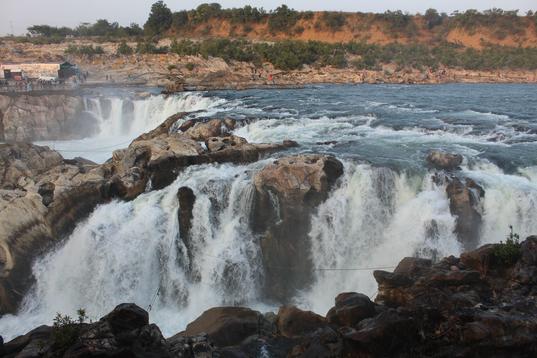The Madhya Pradesh state government has taken up a project to rejuvenate water supply for the city of Indore by enhancing traditional water supply techniques. The city’s current system of extracting water from the nearby river has caused massive implications on its ecosystem while requiring large amounts of energy for pumping and distribution.
Madhya Pradesh, a land-locked state in central India, is highly vulnerable to the impacts of climate change due to its topography and social structure with around 70% of its population living in rural areas.
Changing climatic conditions, such as increasing average temperatures, changes in spatial and temporal distribution of monsoons and increasing rainfall frequency, are severely impacting climate sensitive sectors such as water, agriculture and forestry and threating livelihood security of the majority of the population.
Indore, one of the cleanest cities in India, and the most populous in the state of Madhya Pradesh, experiences around 700 to 800 millimetres of rainfall in the southwest monsoon season (July to September). Climate change poses unique threats to the Indore water supply system and, as a result, a change in rainfall in the range of -4% to +8% is predicted to occur by 2046 – 2065. The growing water footprint of the city is also causing increasing dependence on the Narmada River and causing destruction to its ecosystem.
A project developed as part of the Asian Cities Climate Change Resilience Network (ACCCRN) and implemented by the Department of Environment, Government of Madhya Pradesh (GoMP), through the State Knowledge Management Centre on Climate Change (SKMCCC) and Environmental Planning and Coordination Organisation (EPCO) plans to enhance the adaptive capacity of local communities to address climate change through the conservation of traditional water supply sources in the city of Indore.
Under the project, the Indore Municipal Corporation plans to conserve and rejuvenate 330 traditional water supply sources in the city that will directly benefit around 16,500 households. It will also save the corporation revenue and encourage employment and skills development in traditional water sourcing systems.
The initiative is already having a positive impact on the environmental, social and economic systems in the city:
-
ENVIRONMENTAL: Through the initiative, the city is able to conserve large amounts of water by itself, proving to be self-sustaining.
-
SOCIAL: The quality and accessibility of water has drastically improved, especially for marginalised groups such as women and low-income communities who previously had to travel long distances to collect water.
-
ECONOMIC: The initiative will result in savings of about Rupees 51.6 million per year for the municipal corporation.
This project contributes to the UN Sustainable Development Goal 6: Clean water and Sanitation and Goal 11: Sustainable Cities and Communities. It was also a winner of JSW Foundation’s 2019 Earth Care Awards which recognise actions and innovations for climate change mitigation and adaptation by communities, entrepreneurs, large-scale industries, urban bodies and women-led initiatives. The initiative plans to gather policy support to expand its reach and replicate learnings in other cities of Madhya Pradesh.
This case study was developed as part of the India States Climate Leadership Project of the Under2 Coalition.
